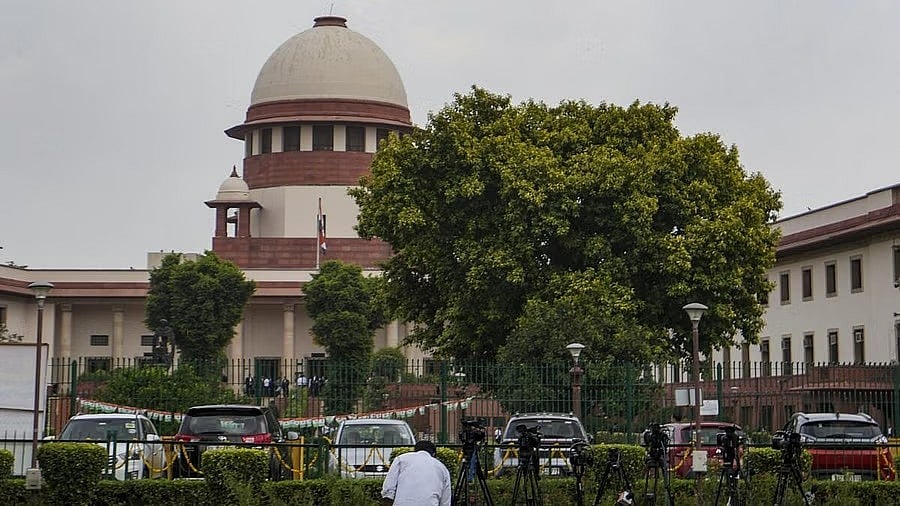
The Supreme Court of India.
Credit: PTI File Photo
New Delhi: The Supreme Court has said that an elected representative can't be dislodged from his position for failing to furnish the asset details of his newly married wife. The court ruled that the matter was tantamount to making a mountain out of a molehill.
A bench of Justices Surya Kant and N Kotiswar Singh restored the election of a corporator of Kalaburgi Municipal Corporation, who was removed from office over failure to provide details of the assets of his newly married wife.
On an appeal filed by Shambuling Patil, the bench said, "We are satisfied that the appellant has been removed from the elected office of the Kalaburagi Mahanagara Palike, on wholly insufficient, arbitrary and untenable grounds."
The court held that merely because the appellant could not get the full details of the properties owned by his wife or family-- as they were newly married -- ought not to be blown out of proportion.
"Such conduct is inappropriate when dealing with an elected representative who has earned the voters' faith," the bench said.
The court set aside the judgment of the Karnataka High Court of October 15, 2024 and restored Patil as elected member of the Municipal Corporation, Kalaburagi till the completion of term.
The appellant was represented by advocate Abhishek Kumar Singh and the respondents Channabasayya Swami Nandikol and others by senior advocate Amit Deshpande.
Patil was declared as elected in the result announced on September 6, 2021.
Respondent voters Arti Tiwari and Channabasayya Swamy Nandikol filed an election petition, contending that Patil had failed to disclose assets of his spouse, among other grounds.
The appellant contended he had gotten married on June 21, 2021 and immediately thereafter, due to the onset of an inauspicious month, his wife had gone to her parents' house and the nomination was filed on August 23, 2021.
Given the fact that he was newly married, he was not aware of the details of his wife financial background and, hence, this omission should also not be construed as 'corrupt practice' under the Representation of People Act, his counsel submitted.
